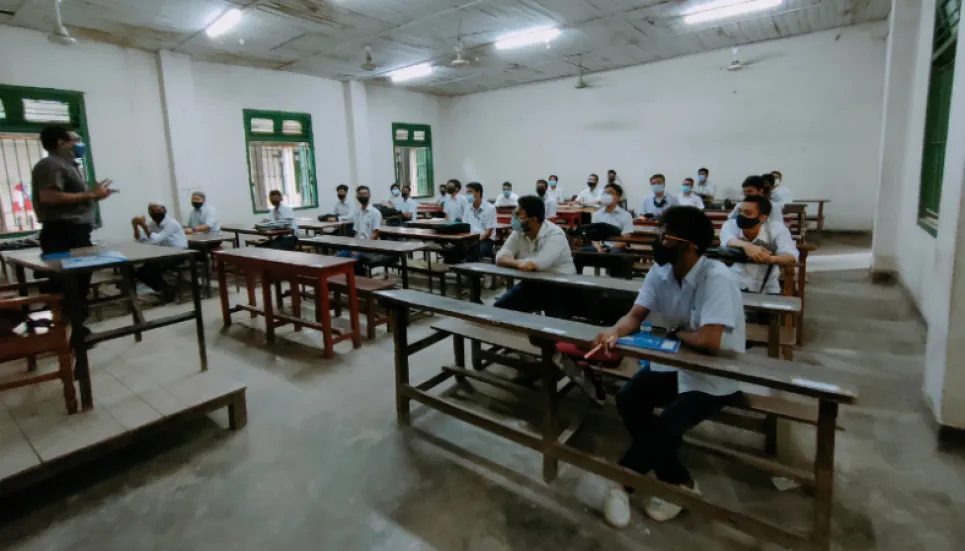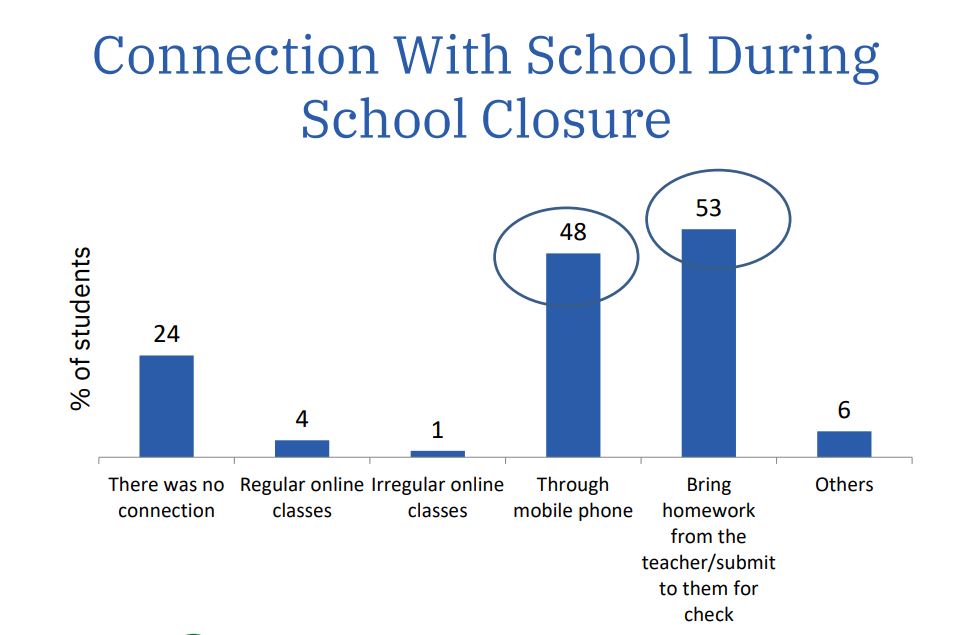
More than seven million students across the country are at risk of learning loss due to the Covid pandemic-induced school closure, a new survey has found.
"The students include 3.96 million of primary level and 3.90 million of secondary level," PPRC Executive Chairman Dr Hossain Zillur Rahman said while unveiling a national survey in a virtual press conference on Monday.
The survey is part of a larger, multi-phase study by Power and Participation Research Centre (PPRC) and BRAC Institute of Governance and Development (BIGD): Covid-19 Livelihoods and Recovery Panel Survey.
Fearing about the dropout of the students, Dr Zillur urged the authorities concerned to initiate a national dialogue in order to protect them from dropout.
The research developed an educational module as part of the larger survey — first in March 2021 and later in August — to examine the changes in the educational life of children.

The phonic survey in rural areas and urban slums show that at least 22 per cent of primary and 30 per cent of secondary students are currently at risk of learning loss due to the shutdown of educational institutions.
From March to August 2021, there is a worrying upward trend in learning loss risk among both primary and secondary schoolchildren across income groups and both in rural areas and urban slums.
The trend is most pronounced among secondary male students; 26 per cent were at risk of learning loss in March, which jumped to 34 per cent in August, according to the survey.
The PPRC-BIGD survey indicates that socio-economic disparities play a role in the learning loss crisis.
According to the findings, the pandemic and subsequent school closures have also adversely affected the mental health of children and adolescents.
In August 2021, over 15 per cent of households reported that school and college-going students have been suffering from mental health stress since the beginning of the pandemic.
Parents reported that their children were more irritable and angrier and displayed more violent behaviour during the school closure period (36 per cent in March compared to 42 per cent in August).
Dr Zillur stressed that human capital crisis has been as great a concern as the health and economic crisis of Covid-19.
“School opening alone without an off-hours remedial program cannot overcome the accumulated learning loss and danger of a drop-out generation,” he said.
BIGD Executive Director Dr Imran Matin, who also presented the findings at the webinar, observed the importance of funding innovative and scalable solutions to address the risks of learning loss and mental health to tackle the educational emergency.
“The long-term cost of not treating this as an emergency can be extremely high, off-tracking years of progress and ambition,” he added.